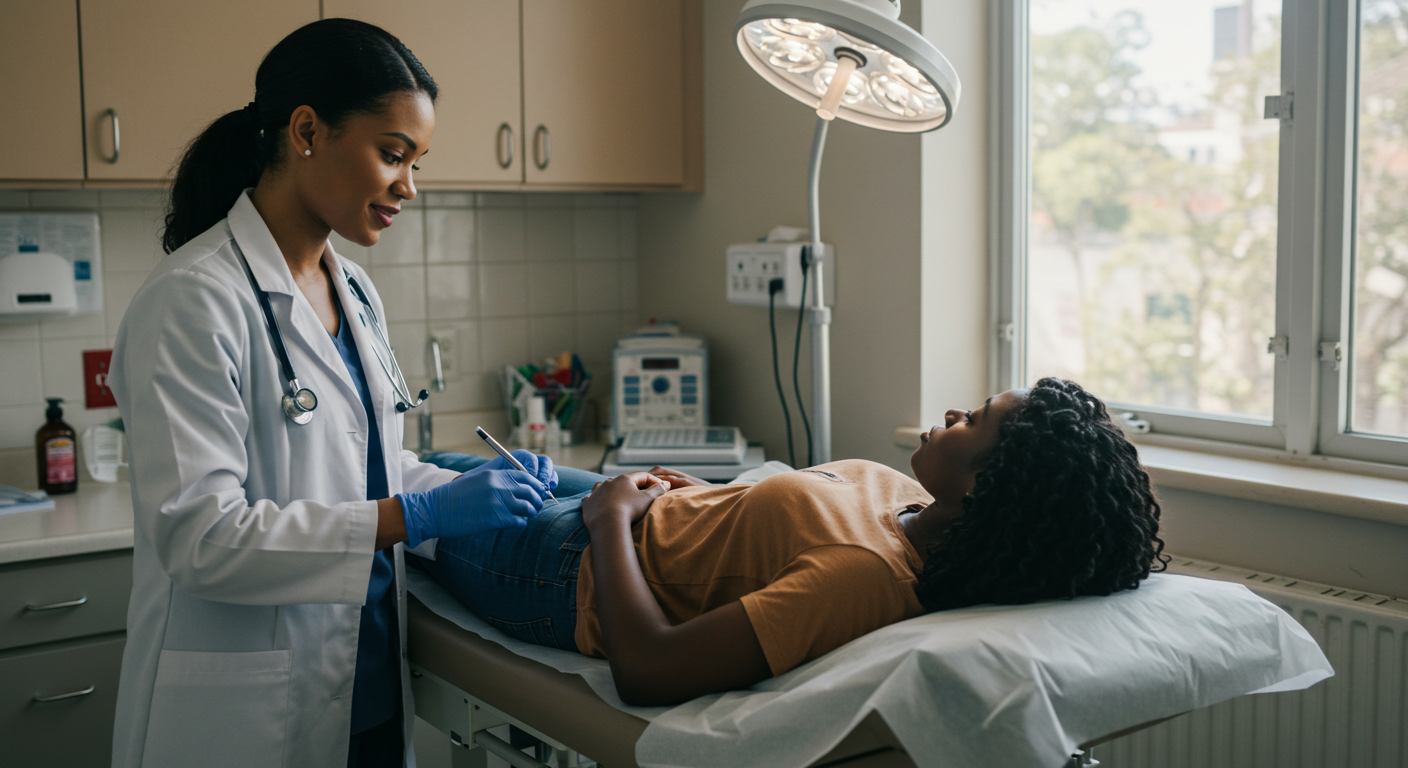Sexual and reproductive health concerns for women are serious, complex, and often life-changing. They’re not topics to brush aside or take lightly, and yet, too many women are left unsure of the right steps to take when something feels off. Without proper guidance, it can be difficult to pinpoint what’s wrong, or even to know if there’s a problem at all. In this article, we’re cutting through the uncertainty.
We’re spotlighting four essential health screenings every woman should know about, tests that can provide clarity, peace of mind, and potentially lifesaving answers. With insights from Dr. Zeenaht Abdullahi, we’ll explain exactly what each screening does, and why making them part of your healthcare routine is non-negotiable.
1. Pap Smear
This is possibly the first and foundational screening women are expected to undergo, particularly because of the number of issues it reveals. For example, the Human Papillomavirus (HPV). Dr. Zeenaht advises that women get pap smears as soon as they get sexually active and, if possible, before they do.
The process involves taking samples from the junction between the cervix and the vagina. The aim is to test for cells that may cause cervical cancer. Getting a pap smear at a public health facility costs about ₦10k, which is mainly for the consumables used for getting the test done. This also covers cervical screening.
2. Human Papillomavirus (HPV) Screening
To properly understand the importance of this test, it’s important for us to list out what it can lead to. Dr Zeenaht tells us that HPV is a leading cause of cervical cancer, vaginal cancer, anal cancer and throat cancer. This screening is important to know first whether the virus is present. If it is, patients are expected to undergo a treatment process after which the vaccine is administered. In the event that it is not, vaccines are administered immediately to patients over a 6-month period.
The screening and subsequent administration of the vaccine are both important because of the list of cancers it prevents. Dr. Zeenaht advises girls between the ages of 9-14 to get the HPV vaccine. This costs about ₦10k to conduct in public health facilities; however, the vaccines are not readily available in them. Vaccines do cost about 30k per shot.
3. Abdominal-Pelvic Ultrasound
This provides women with the opportunity to know the status of their abdominal and reproductive organs. Dr Zeenaht remarks that our bodies go through so many changes, and it’s important to keep track of what’s going on in our bodies. This helps identify issues such as fibroids, which can exist with consistent and pain-free periods. Dr Zeenaht advises that women carry out these tests annually or biannually.
Ultrasounds cost about ₦5k-15k across government and private facilities.
4. Mammograms
This requires an X-ray of the breast/chest area to identify any cancerous lumps or other abnormalities in the area. Dr. Zeenaht emphasises this to trace terminal diseases within genes, especially because genetic testing is not very common in Nigeria. It’s advisable for women to have this done every 2-5 years.
Mammograms cost about ₦20k for a screening.
What sexual and reproductive health screening have you recently undergone, and how much did it cost? Let us know in the comments!
Read Next: What You Need To Know About Your Favourite Contraceptives

